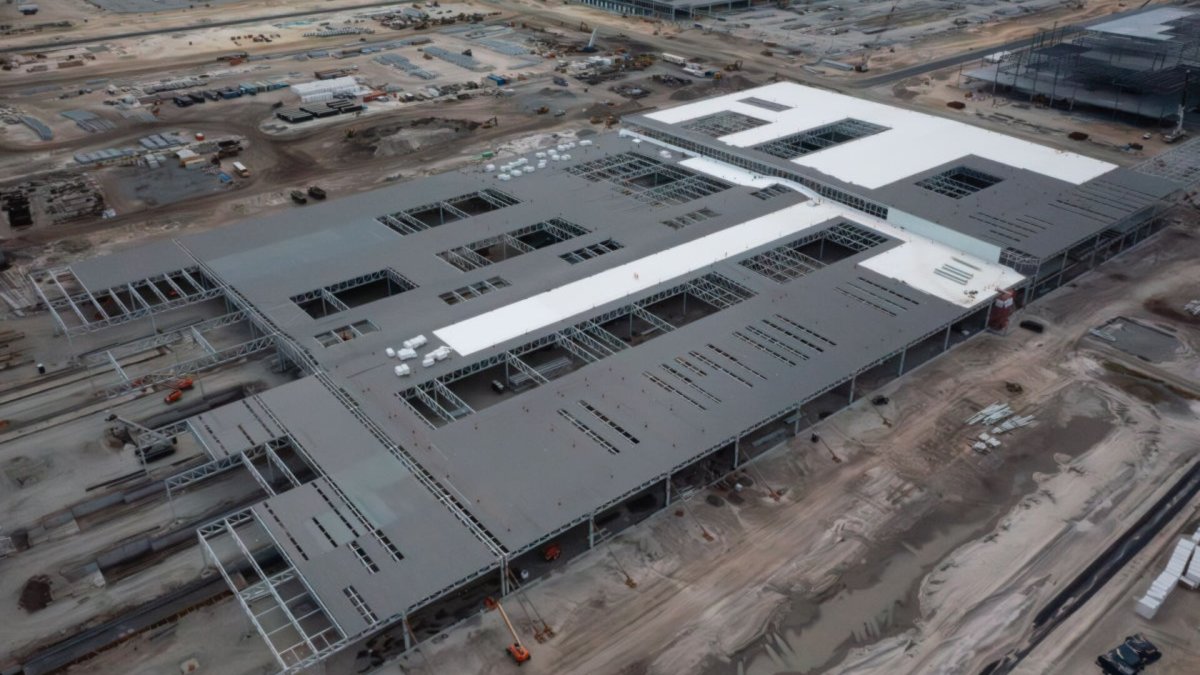The situation for Hyundai’s megaplant in Ellabell, Georgia, has changed dramatically from the jubilation of earlier this year.
The 2,900-acre “megasite” has been in the works since May 2022. Georgia and local governments agreed to give Hyundai as much as $2.1 billion in tax breaks and other incentives to build the facility in the state.
As part of the deal, South Korea’s Hyundai agreed to invest $7.6 billion in the plant located in rural Georgia and hire 8,500 workers by the end of 2031.
While the facility builds the 2025 Hyundai IONIQ 5 and 2026 IONIQ 9 EVs, the campus also features numerous manufacturing partners.
LG Energy Solution is one of those partners.
The pair announced in 2023 that they would invest another $2 billion into the facility, bringing their combined total investment to $4.3 billion.
The development was heralded at the time as the “largest project” in Georgia’s history, as the state looks to become the “e-mobility capital of the nation,” according to Georgia Governor Brian Kemp.
In March 2025, Hyundai Executive Chair Chung Eui-sun invited Georgia Governor Brian Kemp to the ribbon-cutting for the $7.6 billion electric vehicle campus.
But all of those good vibes came crashing down last week when the Department of Homeland Security led an immigration raid that arrested 475 people at the plant, more than 300 of whom are South Korean.

Image source: Nouvelage/Bloomberg via Getty Images
Hyundai CEO publicly responds to immigration raid for the first time
This week, Hyundai CEO Jose Muñoz responded to the raid for the first time, detailing just how much of a setback the issue will be for the company.
“For the construction phase of the plants, you need to get specialized people. There are a lot of skills and equipment that you cannot find in the United States,” Muñoz said from the sidelines during an automotive conference in Detroit, according to Reuters.
Related: Detained Hyundai plant workers get help from a big ally
Muñoz added that employing foreign workers who know how to work the equipment as the facility gets off the ground is typical in a project.
However, thanks to DHS enforcement actions, Hyundai says it is facing a minimum startup delay of two to three months.
“Maybe our government and the U.S. government, they are working closely, and the visa regulation is very complicated. And I hope we can make it together a better system,” Eui-sun also said from Detroit.
U.S. asked if detained Korean Hyundai workers could remain in the States
The DHS insisted that the immigration operation was “about safeguarding the integrity of the economy and preventing the exploitation of workers.”
But this week, President Donald Trump reportedly undermined the whole operation.
The deportation of 330 workers detained at the site was briefly delayed after the president encouraged them to remain in the U.S. and keep working.
“President Trump said the detained Korean nationals are all skilled workers, and that he wanted to explore whether they could stay in the U.S. to continue working and training American workers, rather than return home,” an unnamed foreign ministry official told reporters, according to The Korea Times.
The Korean government echoed Muñoz’s view that the workers at the site were needed because the U.S. lacks the skilled workers necessary to get the job done.
“You need skilled technicians to install equipment at a factory. The U.S. doesn’t have such personnel, yet visas for those coming for this purpose are not allowed,” said South Korea President Lee Jae Myung.
Related: Hyundai’s $7.6 billion pivot hits major snag
#Hyundai #forced #billion #pivot #immigration #raid